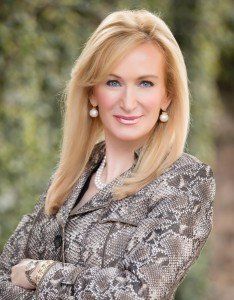CLIENT LOGIN
×RECENT NEWS
ATTORNEY MELISSA F. BROWN
BLOG SIGN UP
Blog Sign Up
We will get back to you as soon as possible.
Please try again later.
VIDEO CENTER
Watch Melissa F. Brown’s September 23, 2013 with Live 5 News
Watch Melissa F. Brown’s September 23, 2013 with Live 5 News
CENTER 4 Women: Separation & Divorce
MARTINDALE-HUBBELL AV RATING
SUPER LAWYERS RATING
Melissa Fuller Brown, November 2015.
ESI (Electronically Stored Information) is information created, manipulated, communicated, stored, and best utilized in digital form, and it requires the use of computer hardware and software. ESI is found on any device having electrical, digital, magnetic, wireless, optical or electromagnetic capabilities including on PDA’s, cell phones, smart phones, digital cameras, GPS devices, portable hard drives, external hard drives, internal hard drives, thumb/flash drives, servers, tablets, I-pads, I-pods, workstations, desktops, and laptops.
In 2006, formalized changes were made to the Federal Rules of Civil Procedure about the use of electronic discovery. Now, at least 49 states have e-discovery and ESI rules. These rules may differ from state to state or, where they might even be identical, the states might still interpret the lawyer’s compliance differently “due to varying jurisdictions’ different social mores, population bases and historical approaches to their own ethics rules and opinions.” [1]
States such as New Hampshire, [2] California, [3] and North Carolina [4] have issued ethics opinions to help specifically advise their attorneys about their ethical obligation to not only understand technology but also to advise potential and current clients about how to preserve ESI evidence. North Carolina even provides various fact scenarios to guide its attorneys depending upon the nuances of a particular situation.
The bottom line is that family law attorneys do have an ethical obligation to stay abreast of technology, social media and the responsibility to preserve evidence related to each. Given the rapid changes in these arenas, it is best for family law attorneys to implement principles, not necessarily “best practices,” [5] to remain aware of their state’s ethics opinions and to advise potential clients from the very first meeting about their duty to preserve ESI evidence so the potential client does not unintentionally destroy evidence and perhaps create their own ethics delimma by having failed to educate the client about this duty.
[1] Social Media Ethics Guidelines of NY State Bar Association’s Commercial & Litigation Section, updated June 9, 2015. http://www.nysba.org/socialmediaguidelines/
[2] “[C]ounsel has a general duty to be aware of social media as a source of potentially useful information in litigation, to be competent to obtain that information directly or through an agent, and to know how to make effective use of that information in litigation.” N.H. Bar Ass’n Ethics Advisory Comm., Op. 2012-13/05 (2012).
[3] Lawyers who lack competence in e-discovery could violate CA’s ethics rules and the attorney’s duty of confidentiality. http://ethics.calbar.ca.gov/Portals/9/documents/Opinions/CAL%202015-193%20[11-0004]%20(06-30-15)%20-%20FINAL.pdf
[4] “Rule 1.1 requires lawyer to provide competent representation to clients. Comment [8] to the rule specifically state that a lawyer”…. [should keep abreast of relevant technology.] ’Relevant technology’ includes social media.”http://www.ncbar.com/ethics/ethics.asp?page=1&keywords=Spoliation
[5] Social Media Ethics Guidelines of NY State Bar Association’s Commercial & Litigation Section, updated June 9, 2015. http://www.nysba.org/socialmediaguidelines/
Powered by
© 2021 Melissa F. Brown, LLC. All Rights Reserved.
This web site is designed for general information only. The information presented at this site should not be construed to be formal legal advice nor the formation of a lawyer/client relationship. Past success does not indicate the likelihood of success in any future representation.










